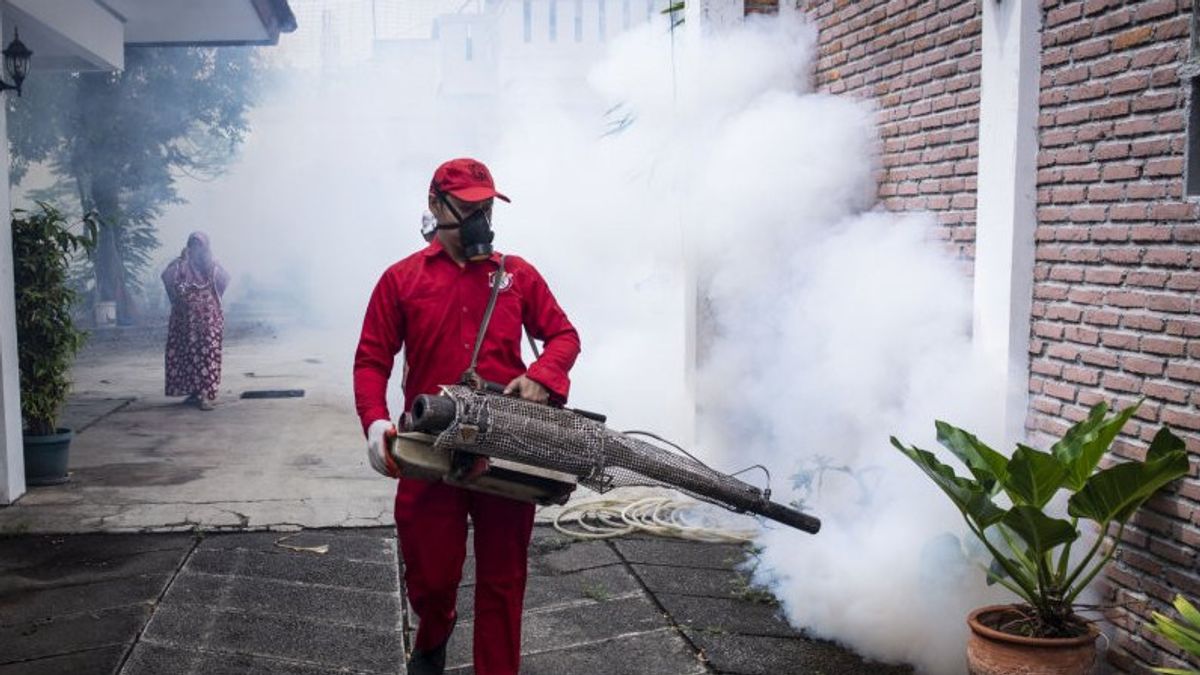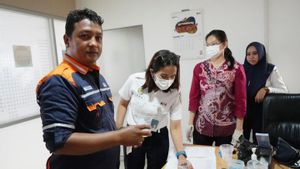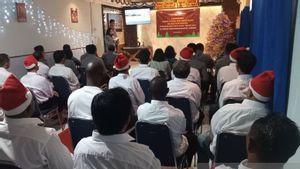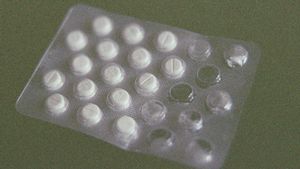JAKARTA - Pediatrician Consultant for Pediatric Infectious & Tropical Diseases from the University of Indonesia, Dr. dr. Debbie Latupeirissa, Sp.A (K) reminded various health problems that can be experienced entering the current transition season, namely dengue hemorrhagic fever (DHF).
"Entering the transition season, various health problems in tropical countries are back. One thing to watch out for is dengue hemorrhagic fever (DHF)," said the doctor who practices at Pondok Indah Hospital - Bintaro Jaya in a written statement, Tuesday, March 1.
DHF is caused by the dengue virus carried by the Aedes Aegypti mosquito. This disease is characterized by typical symptoms such as high fever without other symptoms, for example without cough, runny nose, or shortness of breath. Some patients also complain of symptoms of pain behind the eyes, headaches, joint pain, to the appearance of red patches on the skin, or bleeding.
"However, usually red patches on the skin are not visible in the early days," said Debbie.
According to Debbie, although it is a self-limiting disease or a disease that can heal by itself, it is not uncommon for dengue fever to cause fatalities if not treated quickly. Moreover, if the DHF patient has entered a dangerous phase, and occurs in younger children who have not been able to express their condition. Therefore, not a few DHF patients are then hospitalized to be monitored more closely.
Regarding the course of the disease, there are three phases of DHF, namely days 1-3 which are called the febrile phase without bleeding. In this phase, initial symptoms usually occur such as high fever, headache, joint pain, and pain behind the eyeball.
VOIR éGALEMENT:
After entering days 4-5, the fever tends to go down. At this stage, the patient begins to enter a critical phase. In the case of pediatric patients, most parents are not aware of this phase when the fever goes down, so they think their little one has started to recover.
In fact, at this stage, the risk of shock is much greater. In addition, there can also be a further decrease in platelets which is characterized by bleeding, such as nosebleeds, bleeding gums, or spontaneous red spots on the skin.
In the critical phase, there is a seepage of blood plasma so that there is an increase in blood viscosity or hematocrit and this is important to watch out for. In this phase, the patient requires a lot of fluids by drinking a lot or giving intravenous fluids.
"If the needs of liquid are not fulfilled, the risk of your child experiencing shock which can be life-threatening will increase. Moreover, if the shock is not resolved quickly, there may be severe bleeding complications that will be difficult to overcome," explained Debbie, who is also a member of the Indonesian Doctors Association (IDI).
Bleeding occurs not only due to a very decreased platelet count, but also due to impaired blood clotting function.
Other risks that can occur in this critical phase are impaired consciousness, impaired kidney function, and impaired liver and other organ functions. This condition can occur in approximately 30 percent of cases of severe dengue.
In general, cases of DHF that are treated with adequate fluids will avoid the possibility of serious complications. Debbie said, this is the importance of hospitalization.
The third phase is the recovery or healing phase, which usually occurs on days 6-7. In this phase, the fever has started to fall, the body condition is slowly improving. To speed up the patient's recovery, you should choose a good nutritional intake to increase endurance, including platelet levels.
DHF like other infectious diseases both start with fever, although each disease usually has its own characteristic symptoms. To distinguish DHF from other diseases that also usually begin with fever, blood tests, namely dengue NS1 antigen examination, can be an option.
Debbie then gave tips to avoid dengue, namely maintaining immunity. This can be done by fulfilling good nutrition, namely by adequate intake of macronutrients such as carbohydrates, proteins, fats, and micronutrients namely vitamins and minerals. In addition, it can also be strengthened by giving the dengue vaccine to someone aged 9-16 years.
On the other hand, environmental control is also important to do to prevent virus-carrying mosquitoes from reproducing. Mosquitoes generally like clean water reservoirs such as ponds or bathtubs.
"So, water reservoirs must be drained frequently. Also, clean the water reservoirs that make it easier for mosquitoes to nest and lay eggs," said Debbie.
The next step, check the room including the child's room, avoid lots of hangers or items to prevent mosquitoes from nesting. You can also spray or fogging to kill adult mosquitoes and kill mosquito eggs by abatization. You can put abate powder into water sources so that the mosquito eggs will die and the reproduction process will stop.
The same thing was also expressed by a Pediatrician, Sub-Specialization of Tropical Infectious Diseases as well as the Central Board of the Indonesian Pediatrician Association, Dr. Nina Dwi Putri, SpA(K), MSc (TropPaed). Nina said that standing water can be used as a breeding ground for mosquitoes and has the potential to increase exposure to dengue infection. Dengue virus infection is one of the common diseases that attacks children and adults in the rainy season and occurs in the tropics. She reminded the importance of implementing 3M plus to eradicate mosquito nests and avoid mosquito bites.
The English, Chinese, Japanese, Arabic, and French versions are automatically generated by the AI. So there may still be inaccuracies in translating, please always see Indonesian as our main language. (system supported by DigitalSiber.id)











